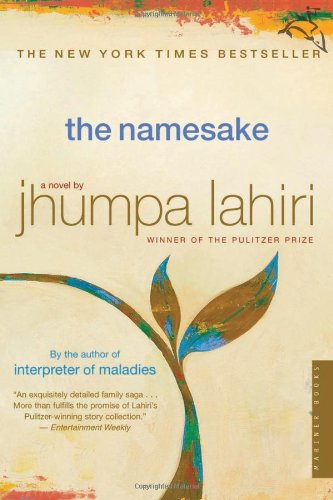All Nonfiction
- Bullying
- Books
- Academic
- Author Interviews
- Celebrity interviews
- College Articles
- College Essays
- Educator of the Year
- Heroes
- Interviews
- Memoir
- Personal Experience
- Sports
- Travel & Culture
All Opinions
- Bullying
- Current Events / Politics
- Discrimination
- Drugs / Alcohol / Smoking
- Entertainment / Celebrities
- Environment
- Love / Relationships
- Movies / Music / TV
- Pop Culture / Trends
- School / College
- Social Issues / Civics
- Spirituality / Religion
- Sports / Hobbies
All Hot Topics
- Bullying
- Community Service
- Environment
- Health
- Letters to the Editor
- Pride & Prejudice
- What Matters
- Back
Summer Guide
- Program Links
- Program Reviews
- Back
College Guide
- College Links
- College Reviews
- College Essays
- College Articles
- Back
The Namesake by Jhumpa Lahiri MAG
I venture to the New York City bookstore The Strand about once a month. After passing one book several times during my visits, I finally picked it up, and I'm glad I did.
The language in The Namesake is beautiful, detailed, and rich. The story, about a young couple who has recently moved to America from India and only met once before they married, is compelling and human.
The book circles around the idea that their son, Gogol, was named after his father's favorite author, whose work his father believes saved him in a tragic accident. The name torments Gogol his whole life, but his father never reveals his secret until Gogol graduates from college.
The Namesake follows Gogol through love, work as an architect, and heartbreak. It is particularly interesting because the story is told from the perspectives of his mother, father, Gogol, and his wife. Gogol feels no connection to India, and his parents feel no connection to America. They are so incredibly different – in their natures and how each of them was raised – and so sure of their respective opinions that one cannot help but love them.
Still, I don't want the reader of this review to get the idea that the book is joyful, or even has a happy ending. The reader leaves Gogol mid-life and alone, back at home, where he began. It is a circle that seems to continue through generations.
Similar Articles
JOIN THE DISCUSSION
This article has 0 comments.

